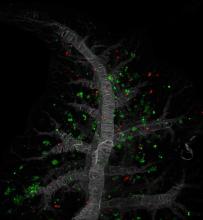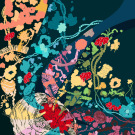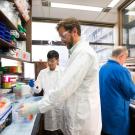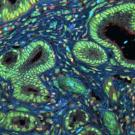News
How to Build Bold Thinking to Foster Scientific Breakthroughs
Collectively, neuropsychiatric and neurodegenerative diseases are leading causes of illness, disability and premature death worldwide. And while they are categorized separately, they have much in common. Similarly, Martin Kampmann, PhD, who studies neurodegenerative diseases, and Anna Victoria
UCSF Health Brings Specialty Care Close to Home on Peninsula
UCSF Health has opened its fifth outpatient facility and third cancer center on the Peninsula to expand patient access to a range of UCSF Health specialists and care. The Peninsula Outpatient Center, located at 225 California Dr. in the heart of downtown Burlingame, offers cancer clinical care, an
Jumbled Proteins Paint a Bold Target on the Backs of Brain Tumors
Immune therapy has transformed how cancer is treated, but many tumors continue to evade these treatments, thanks to their resemblance to healthy tissue. Now, researchers at UC San Francisco have found that some cancers, like brain cancer (glioma), make unique, jumbled proteins that make them stand
Nine Cancer Research Projects Funded in Fall 2024 RAP Cycle
Nine investigators and teams were awarded grants in support of cancer research projects in the fall 2024 cycle of the UCSF Resource Allocation Program (RAP). Funded by various agencies across UCSF, the awards span a range of topics from novel imaging techniques to cancer-related fatigue to
Q&A: Breast Imaging Researcher Natsuko Onishi Yamashita, MD, PhD
In honor of International Day of Women and Girls in Science, February 11, we express our gratitude for the remarkable women who drive excellence and innovation in the UCSF Department of Radiology & Biomedical Imaging. Today, we spotlight Natsuko Onishi Yamashita, MD, PhD, of the Breast Imaging
Mission Bay Hospitals Celebrate 10 Years of Impact and Care
Adecade ago, 131 patients became the first to set foot in the new $1.5 billion, state-of-the-art UCSF Medical Center at Mission Bay. Welcomed by balloons, party horns and smiling UCSF Health staff and clinicians, the arrival of both adults and children at the hospitals’ opening marked a new chapter
Can Scientists Throw a Wrench into Cancer’s Growth Gears?
For decades, scientists have tried to stop cancer by disabling the mutated proteins that are found in tumors. But many cancers overcome this and continue to grow. Now, UCSF scientists think they have figured out how to throw a wrench into the fabrication of a key protein, MYC, that drives the growth









